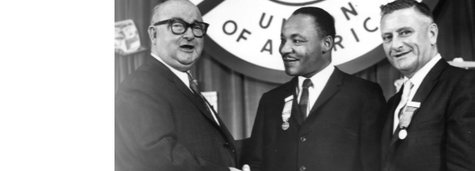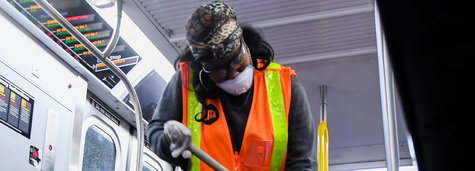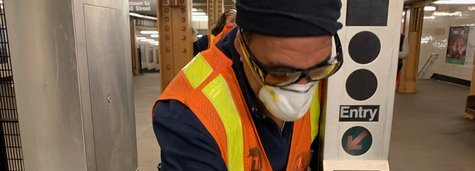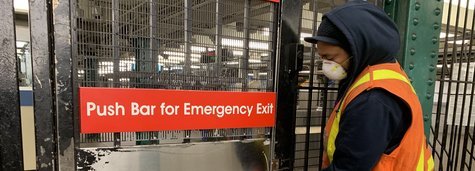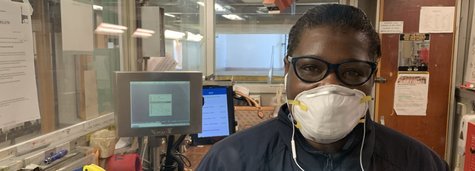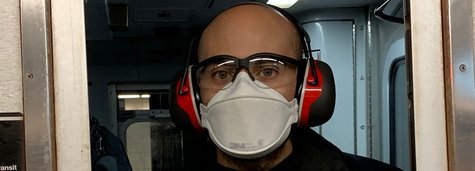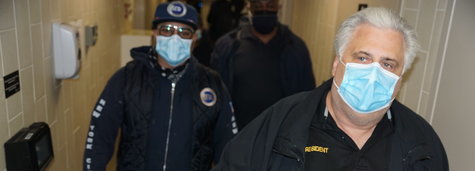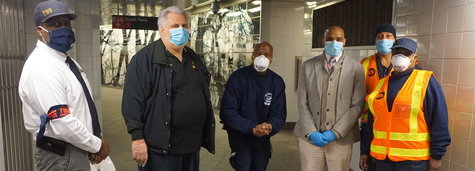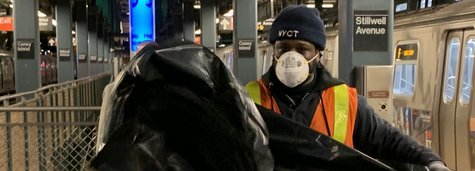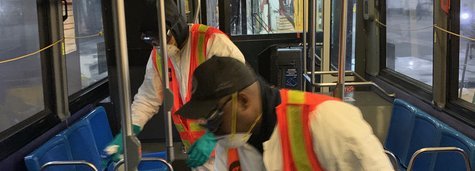Defense Attorney Spars with Toxicologist on Defendant’s Level of Impairment
MONDAY, MARCH 20 -- Assistant District Attorney Randolph Clarke has told courtroom observers that he will rest the prosecution’s case in the murder of Bus Operator William Pena tomorrow, Tuesday, March 21. The defense is expected to make a short presentation and the case will likely to go the jury on the morning of Thursday, March 23rd.
At today’s court hearing, Laura Miranda, the defense attorney for Domonic Whilby, who rammed his stolen truck into Brother Pena’s bus early on the morning of February 12, 2014, cross examined toxicologist William Dunn on Whilby’s level of impairment just prior to the 5:25 AM crash. Even though ADA Randoph Clarke has told the jury that intent to commit a crime need not be proven for them to convict, Miranda is sticking by her strategy of attempting to show that Whilby was not aware of his actions when his truck plowed into the M14 bus.
Miranda asked Dunn in court whether Whilby could have been asleep when his truck crashed into the bus, and Dunn agreed that it was possible. Establishing that Whilby’s blood alcohol level at the time of the crash was above .25, Dunn conceded that that level of consumption would “indicate difficulty in executing good judgment.” Queried by Miranda: “Is it fair to say that someone with that blood alcohol level would not be aware of what they were doing even when they were doing it?,” Dunn replied, “That’s a new one on me.” Miranda pressed further: “Isn’t it true that there are people [with those blood alcohol levels] who made love and didn’t remember afterwards that they made love?” Dunn answered: “I haven’t heard that one before.”
Dunn didn’t buy Miranda’s theory that, since Whilby didn’t brake as he approached the City bus which Pena was driving, that he failed to perceive the danger, saying, “I’m having trouble getting my head around the case where one vehicle is heading directly toward another and the driver is not perceiving any danger.” Making the point that performance while impaired has a lot to do with alcohol tolerance, Dunn said that a blood alcohol reading of .25 to .29 is “in the realm of what I would call problem drinkers.” He said that social drinkers don’t usually get to that level, and that, for Whilby’s blood to have registered that amount, he would have had to have had between 6 and 10 drinks before the crash. Prosecution video and testimony clearly shows him having at least that amount, if not more. Cognition on the part of an impaired person – the ability to think and reason normally – Dunn emphasized, “depends on the individual’s tolerance for alcohol.”
To Miranda’s questioning as to whether alcohol intoxication could induce a state akin to sleepwalking, Dunn said he couldn’t equate the two. He did agree that alcohol intoxication could cause a blackout – that is, amnesia. On re-direct from ADA Clarke, Dunn agreed that “amnesia is not remembering the choices you made,” not that you necessarily lacked the ability to make a choice at the time.
Clarke asked, “Does the brain still function?”
Dunn replied, “It has to.”
Clarke re-emphasized his point: “A blackout doesn’t mean that the individual didn’t want to be engaging in the actions that he did.”
Dunn agreed that this was “a fair assessment.”
ADA Clarke has indicated that the prosecution will rest their case tomorrow, and the case is likely to go to the jury Thursday.

